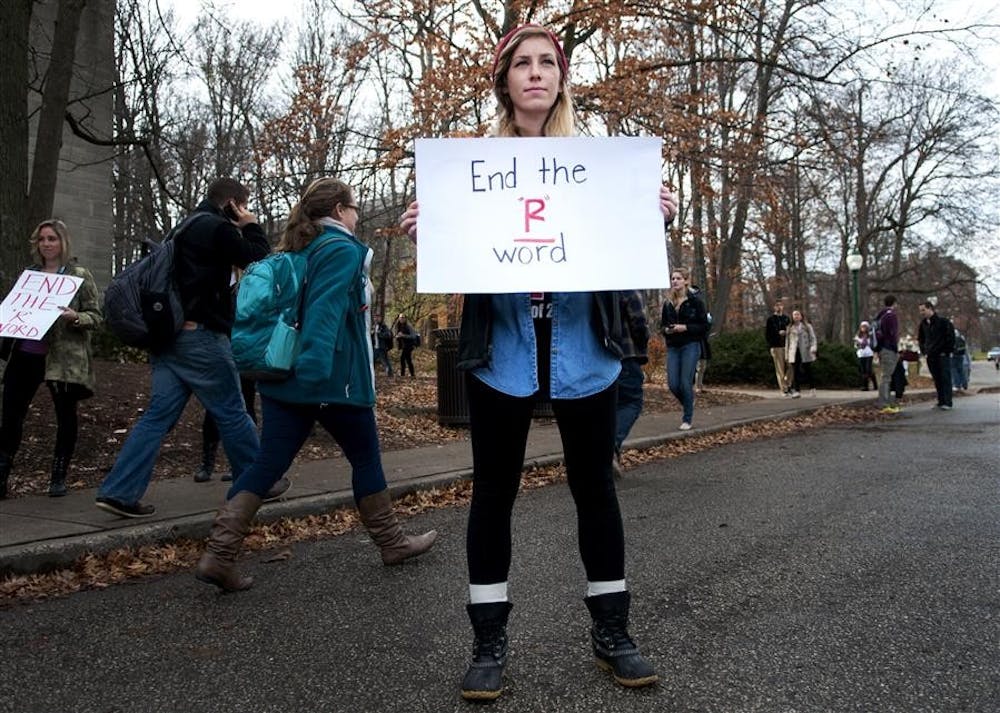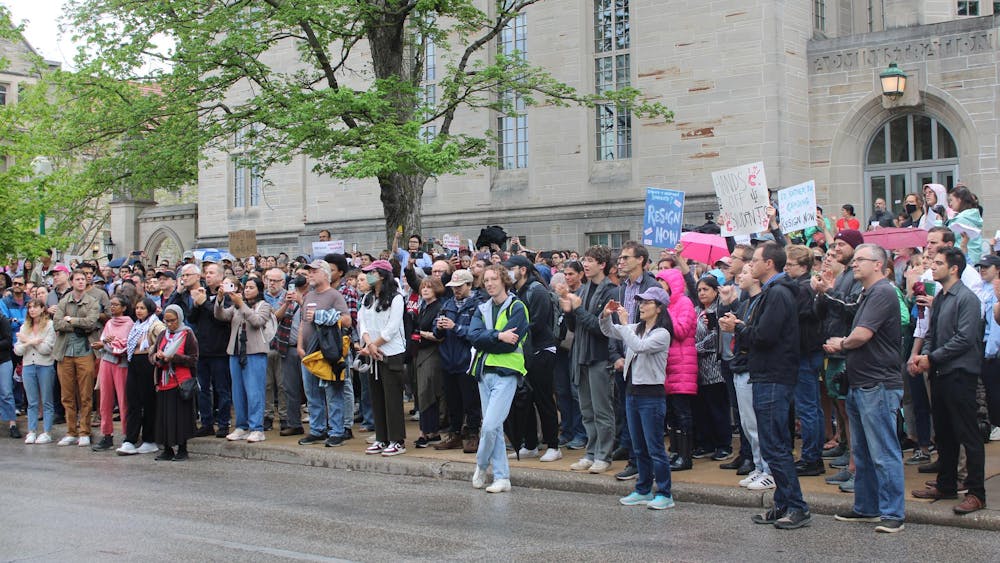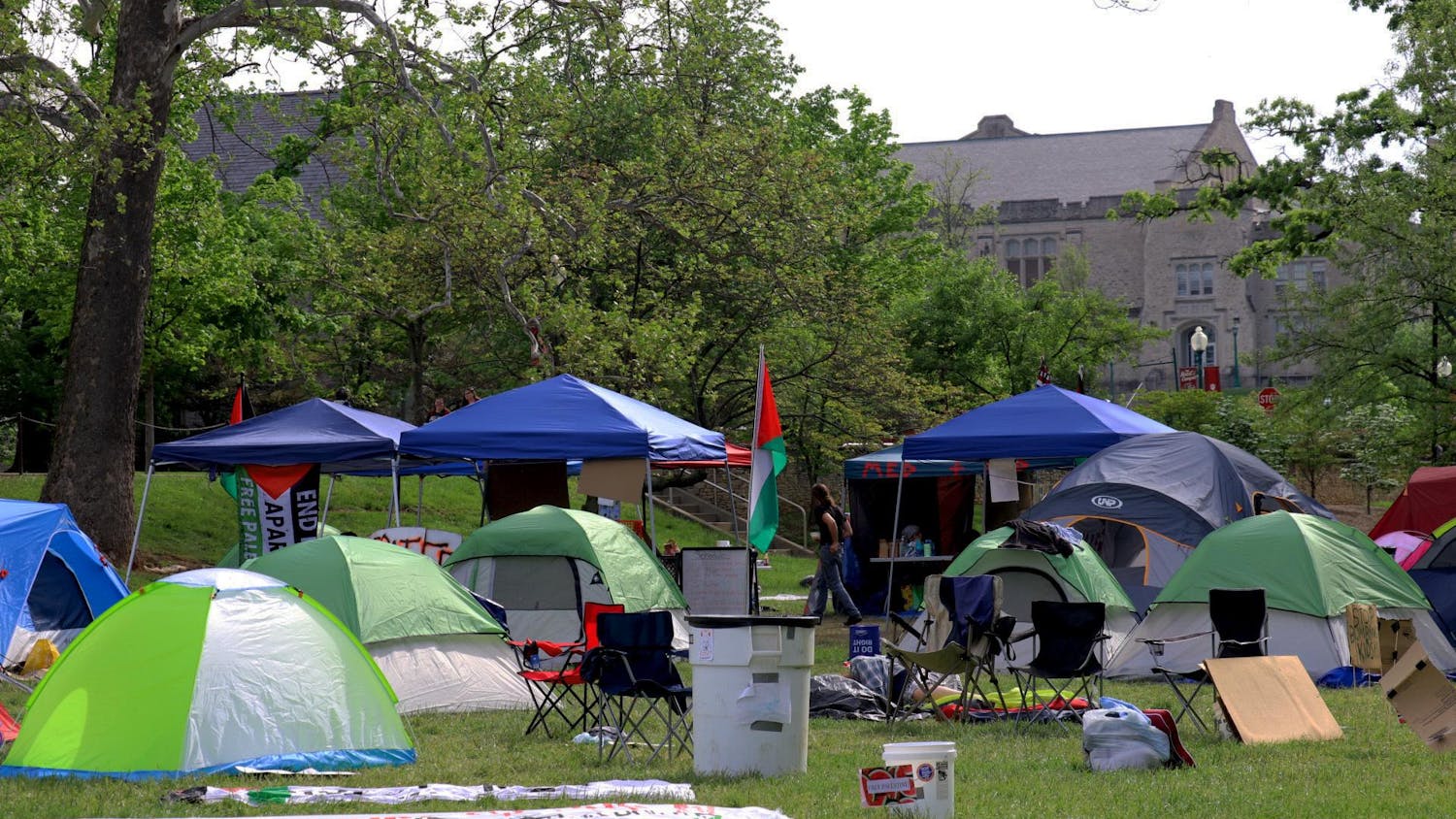A group of students from the School of Education performed a freeze mob Thursday to raise awareness of stigma directed toward special education students.
“Retard,” “handicapped,” “autism” and “special” were a few of the words that appeared on big, white posters held by the freeze mob in front of Ballantine Hall on Thursday.
The event was part of a research study conducted by the students, who are members of the Teaching All Learners Program in the School of Education. The program focuses on elementary and special education.
For their project, the students interviewed people about the first word they thought of when they heard the term “special education,” senior Stefanie Wettersten said.
They discovered the word that received the highest usage was “retarded” or some form of it, such as “mental retardation,” Wettersten said.
“We were a little shocked and disappointed that some people were using some form of ‘retarded,’” Wettersten said. “We’re trying to shed some light. We want to bring awareness to the campus to make people change their vocabulary.”
The group decided to present the results through a freeze mob and promote it on Twitter using the hashtag #TALFreezeMob.
“We wanted our findings accessible to everyone, more accessible than they would be in a research paper,” Wettersten said.
Their class, taught by professor Meagan Call-Cummings, required students to produce a research project and present their findings at the end of the semester.
Call-Cummings wanted their methods to focus on participatory action research, a method that aims to improve the world by changing it, specifically with data collection and participant reflection.
The class split into two main groups with one group focused on conducting interviews and the other conducting surveys. The survey, promoted through Facebook and Twitter, received more than 600 responses, Grannan said, and there was no age limit.
Senior and classmate Caitlin Grannan said the results weren’t as surprising as they could have been.
“It’s sad, but it’s also not very surprising,” Grannan said. “It’s a very common word. Although I am happy with some of the people who put uplifting words.”
With the various word responses they received, the researchers decided to turn their work into a Wordle, a “word cloud” that causes words to appear bigger or smaller in a picture depending on how many times that word is used.
Though there were a lot of negative words associated with “special education,” an assortment of positive words did make an appearance. Words such as “disabled,” “patience” and “important” were in the Wordle as well.
Grannan said she appreciated being able to conduct interviews as part of the study.
“Instead of a focus study group, we could watch them ourselves,” Grannan said. “We could give them the chance to put their thoughts in as well.”
Grannan said she also liked the interactive aspect of the freeze mob.
“We want to let people see these common words, and hopefully they’ll think about some of the more negative words before they use them,” Grannan said.
On Oct. 5, 2010, President Obama signed Rosa’s Law, a law in which the term “mental retardation” is replaced with “intellectual disability” in regard to federal health, education and labor policy.
Not only do the students wish to raise awareness of the way special education is perceived, but they also aim to show that the term “mental retardation” is no longer politically correct, Grannan said.
“The law has changed, why haven’t you?” the students shouted in unison at the end of the freeze mob. “End the R-word.”
As an aspiring teacher, Wettersten said the experience opened her eyes to perceptions about special education.
“The more people understand, the more we’ll see positive words in the future,” Wettersten said. “It’s been an interesting process.”
Follow reporter Tori Lawhorn on Twitter @ToriLawhorn.
Freeze mob fights ‘R-word’ stigma

Get stories like this in your inbox
Subscribe





